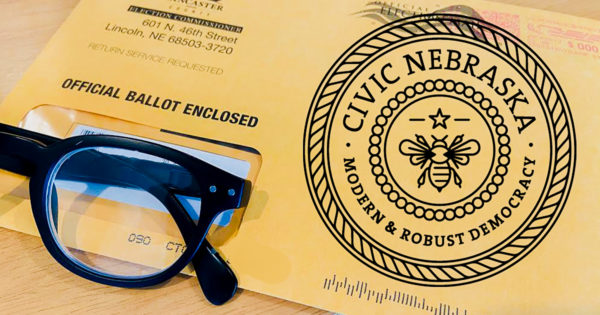It’s Constitution Day, a time to celebrate those 4,400 words that make up the oldest – and shortest – written Constitution of any major government. If you include amendments, the word count comes in at 7,591. Our Constitution is worth a read at least once a year, so we’ll wait here while you tackle that.
All done? Great. Now, let’s grab some popcorn and fire up some movies! If you look closely, our supreme law of the land has a long cinematic history. It co-stars in so many great films, in fact, that there are too many for just a dozen clear picks. So, we’re just focused on the amendments this go-round to make up this list (we’ve thrown in a few suggestions for further viewing, too).
Enjoy!
Track your progress with our 12-by-18″ full-color poster! JPG or PDF.
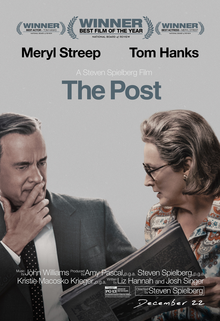

The First Amendment protects five core American liberties – religion, speech, press, petition, and assembly. Defining the limits of these freedoms is a quintessential, and ongoing, American argument.
Our pick: The Post (2017). Set in 1971, it highlights The Washington Post’s decision to publish portions of the Pentagon Papers, a classified report that revealed decades of U.S. involvement in Southeast Asia. This Spielberg-directed thriller is not only about freedom of the press; it’s about courage when the Powers That Be wage war with that constitutional right.
Further viewing: Selma (2014); Citizen Kane (1941); All the President’s Men (1976); The People vs. Larry Flynt (1996)
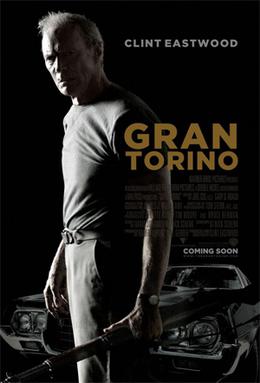

The Second Amendment references both the collective right of a militia and an individual right to bear arms. For all its modern controversy, the Second Amendment hasn’t been a very hot-button topic for much of U.S. history – in fact, the Supreme Court didn’t clearly back an individual’s right to keep a weapon at home until 2008.
Our pick: Gran Torino (2008). Directed by, produced by, and starring Clint Eastwood, this story of growth and friendship follows Walt, a retired Detroit autoworker who keeps his shotgun ready to lock and load to protect his changing neighborhood. He becomes a reluctant hero when he stands up to gang members attempting to coerce a neighbor to steal Walt’s treasured Gran Torino. An unlikely friendship results.
Further viewing: Tank (1984), Dirty Harry (1971), Death Wish (1974)
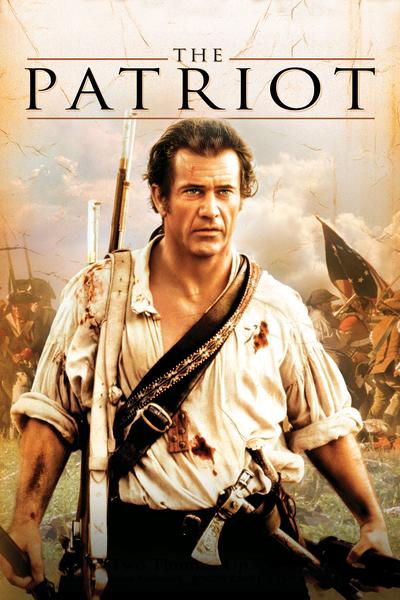

The Third Amendment is one of the least-cited sections of the Constitution, which we’re sure is fine with most everyone. It restricts the quartering of soldiers in private homes without their consent, and forbids it in peacetime.
Our pick: The Patriot (2000). Mel Gibson stars as Daniel, a South Carolina widower and father in the 1770s. He’s reluctant to join the Revolution; that changes when a monstrous British colonel arrests his eldest son and takes him away to be hanged, after first shooting another son on a whim, then burns down his house that he had just used as a makeshift military hospital.
Further viewing: Training Day (2001), Cops and Robbersons (1990)
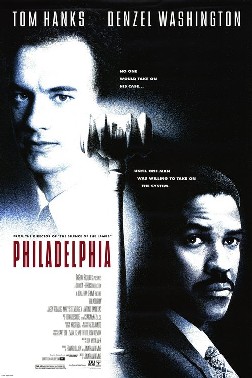

The Fourth, Fifth, Sixth, and Seventh Amendments protect Americans’ privacy against unreasonable searches and seizures; against self-incrimination; rights for a fair and speedy jury trial; and rights to bring civil actions.
Our picks: Whew. So many good ones in this category. Minority Report (2002) is a powerful, futuristic Fourth Amendment primer; The Client (1994) is a legal thriller that features a teenager’s Fifth Amendment rights (among others); 12 Angry Men (1957) highlights the Sixth Amendment; and Philadelphia (1993) is an emotional example of the Seventh.
Further viewing: The Conversation (1974), The Truman Show (1998), Gattaca (1997), Runaway Jury (2003), Erin Brockovich (2000)
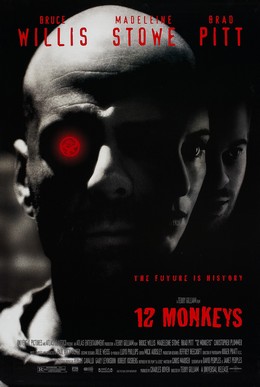

The Eighth Amendment protects us against excessive bail or fines and, importantly, against cruel and unusual punishments.
Our pick: 12 Monkeys (1995). If there’s ever been a dystopian case against cruel and unusual punishment, it would be James Cole (Bruce Willis), a prisoner in the year 2035. Cole is sent back in time to help scientists develop a cure to a deadly pandemic that wiped out much of the globe in 1996. During a series of time travels, he’s thrown in a 1990 mental institution, shot during World War I, and eventually is forced to carry out what promises to be a suicide mission. Whew.
Further viewing: Dead Man Walking (1995), Sleepers (1996)
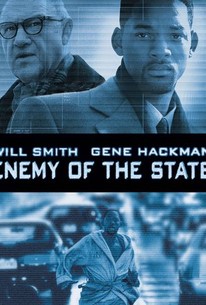

The Ninth and Tenth Amendments were added to the Bill of Rights because the Framers feared that later presidents, Congresses and judges might say the previous amendments were exclusive. The Ninth Amendment says that spelling out certain rights shouldn’t be seen as “denying or disparaging other rights.” The Tenth Amendment says that powers not designated by the Constitution to the federal government are reserved to the states or the people.
Our pick: The Ninth Amendment comes in handy for Chris Gardner (Will Smith) in Enemy of the State (1998) when he becomes a victim of government overreach. The Tenth Amendment runs ironically and symbolically, if not literally, throughout The Free State of Jones (2016), about a disillusioned Confederate deserter in Mississippi who leads a militia of fellow deserters in an uprising against their corrupt government.
Further viewing: C.S.A.: The Confederate States of America (2004); Milk (2008)
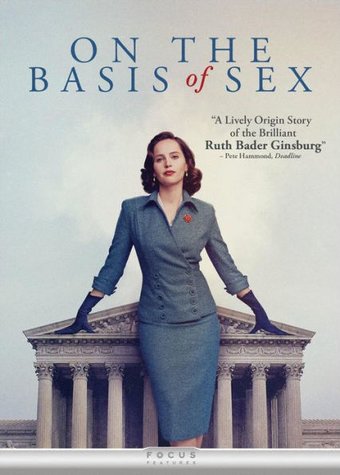

The Thirteenth, Fourteenth, and Fifteenth Amendments are among the most important additions to our Constitution, extending civil and legal protections to formerly enslaved people. Today, they’re the bedrock for so many of our discussions about the rights and responsibilities of U.S. citizenship.
Our picks: The most important Thirteenth Amendment film is 13th (2016), a documentary at the intersection of race, justice, and mass incarceration in America. For the Fourteenth Amendment, On The Basis of Sex (2018) is an example of the Equal Protection Clause coming to life. And All The Way (2016) featuring Bryan Cranston as LBJ begins to bring the true promise of the 15th Amendment to fruition.
Further viewing: Lincoln (2012), Mississippi Burning (1988); Loving (2016)
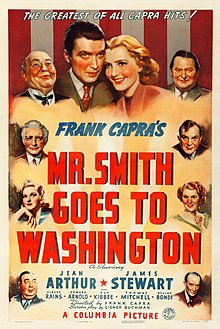

The Seventeenth Amendment, which made U.S. senators elected by the people instead of appointed by state legislatures, was ratified in part to reduce the influence of big business and other special interests on the selection of senators.
Our pick: Mr. Smith Goes To Washington (1939). Jefferson Smith spends much of the film fighting the Washington machine as it attempts to chew him up and spit him out. He’s mocked in the press, manipulated by colleagues, and eventually discovers new layers of corruption and graft. It’s a film that makes the comfortable uncomfortable, and we’re behind that notion.
Further viewing: Star Wars Episode 3: Revenge of the Sith (2005); The Distinguished Gentleman (1992)
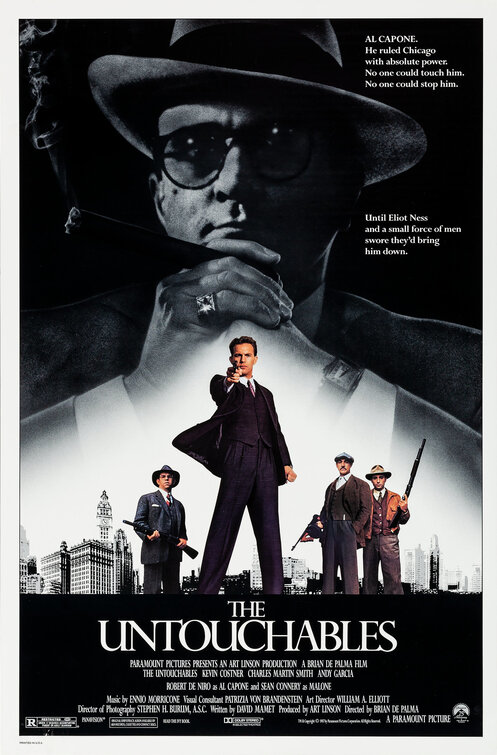

The Eighteenth Amendment banned booze in the United States – and ushered in the increase of illegal production and sale of liquor, the proliferation of illegal drinking spots, and a rise in gang violence.
Our pick: The Untouchables (1987). This classic cops-and-mobsters struggle brings together an all-star cast including Kevin Costner, Sean Connery, Robert DeNiro, and Andy Garcia. Action, courtroom drama, intrigue – plus an ending with one of the best kickers ever.
Further viewing: Little Caesar (1930); Once Upon a Time in America (1984); Miller’s Crossing (1990)
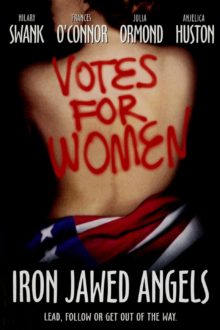

The Nineteenth Amendment, which we are celebrating a century of this year, gave women the right to vote.
Our pick: Iron-Jawed Angels (2004). Originally broadcast on HBO, Iron-Jawed Angels is a frenetically shot, aggressively edited, in-your-face telling of the final fight for women’s suffrage. Hilary Swank plays Alice Paul, founder of the National Woman’s Party, who together with Lucy Burns (Frances O’Connor), struggles against conservative forces to pass the 19th amendment.
Further viewing: Black Sorority Project (2013)
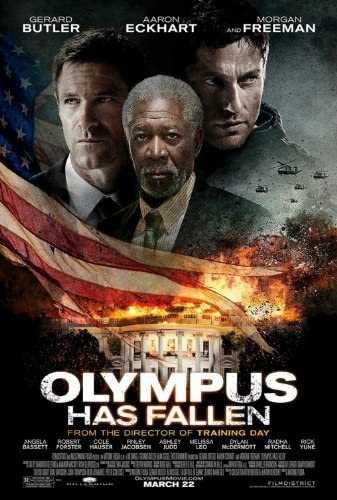

The 25th Amendment provides for the vice president to assume the office of “acting president” if the vice president and a majority of the cabinet determine that “the president is unable to discharge the powers and duties of his office.” It was adopted in 1967, following the assassination of President Kennedy, to clarify issues involving presidential and vice-presidential succession and incapacity.
Our pick: Olympus has Fallen (2013). This political thriller centers on the kidnapping of the president and his top advisers, including the vice president and the secretary of defense – and what would happen next.
Further viewing: White House Down (2013); Air Force One (1997)
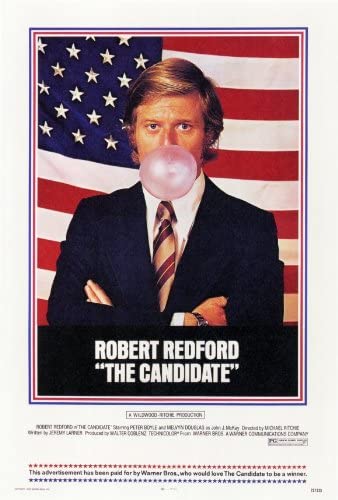

The 26th Amendment set the voting age in the United States at 18. The effort to lower the voting age began three decades earlier – “Old enough to fight, old enough to vote” was a slogan first heard during World War II and was revived by activists during the Vietnam War.
Our pick: The Candidate (1972). The first notable political film released after the voting age in the United States was lowered to 18, this comedy-drama examines the various facets and machinations involved in our political campaigns. Starring Robert Redford and Peter Boyle, The Candidate won the Oscar for original screenplay.
Further viewing: Wild in the Streets (1968)




